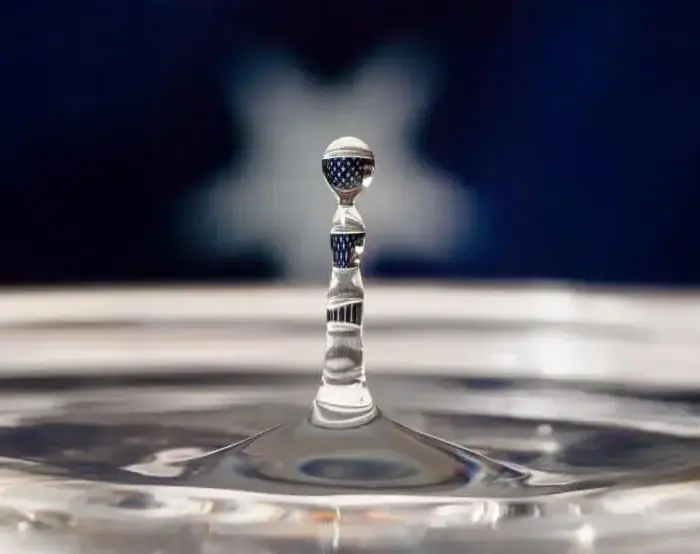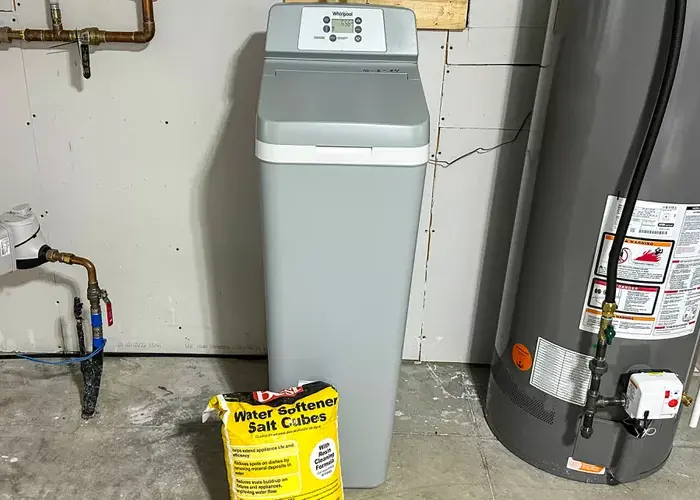Houston, we have a problem: Hard water.
Hardness is a measurement of how much calcium and magnesium, the “hardness” minerals, are dissolved in water. Hardness is measured in grains per gallon (GPG), or in milligrams per liter (mg/L). 0 GPG (0 mg/L) is fully softened water. In nature, anything under 2 grains per gallon (34.2 mg/L) is considered “soft.” Houston area water will average around 8 GPG with some areas as high as 12 GPG and is considered fully hard water.
Rainwater is considered soft. It contains no dissolved minerals because it is pure water condensed from clouds. However, water is considered a universal solvent. Rainwater can start to collect impurities as it falls, and once on the ground, water will dissolve almost anything it touches.
Hard water can scale and coat the insides of pipes, water heaters, dishwashers, and washing machines It can dull glasses and dishes, streak glass, make laundry dingy and require more detergent and fabric softener. It also can make food and beverages need more flavorings and dry out your hair and skin.
Commercial laundries, restaurants, beverage producers, health spas, hairdressers, and even chemical plants use water softeners, because their products would not be as good with hard water, and it saves them money on maintenance and ingredients.
Your home is your personal restaurant, laundry, beverage producer, spa, bath house, and you must heat water as well. Hard water in your home makes all of these “harder to do,” more costly, and less effective.
A water softener will remove the hardness from the water. An ion exchange water softener contains a media that attracts all the hardness minerals, and some other heavy metals as well, removing them from the water, and the hard water that enters the water softener, will leave the water softener, and enter your home, softened. The hardness can be scientifically tested before the water softener, and scientifically tested at 0 GPG after the water softener. This eliminates the hard water problems and saves money on maintenance. The best water softeners will regenerate, (re-charge themselves to full capacity), usually using sodium or potassium, automatically by counting gallons, and flush down the sewer the contaminants collected.
A “no salt scale prevention system” does not soften the water. It does not actually remove anything from the water and doesn’t regenerate. A hardness test before the no salt system and after it will measure exactly the same. There is no such thing as a so-called “no salt or salt free water softener.” These systems claim to sequester the calcium and magnesium so they cannot come out of solution to coat pipes and cause scale. There is currently no way to test to show they are working.
Water softeners are needed and used by so many homes and businesses because of the many benefits they can provide in the areas of maintenance savings and lifestyle improvements. A whole house water softener can help prevent pipes and appliances from scaling up, extending their life expectancy, and reducing maintenance costs. A whole house water softener can reduce the amount of soap and detergent needed in dishwashers and washing machines by 75% or more, resulting in cleaner laundry, glasses, and dishes and lower soap costs. A water softener can make your skin and hair smoother and softer, and many people with water softeners no longer need to use lotions or conditioners. A water softener can make food and beverages like coffee, tea or juices made from concentrate taste better, and require less of the ingredients.
Houston’s hard water problems can be solved with a whole house water softener.








